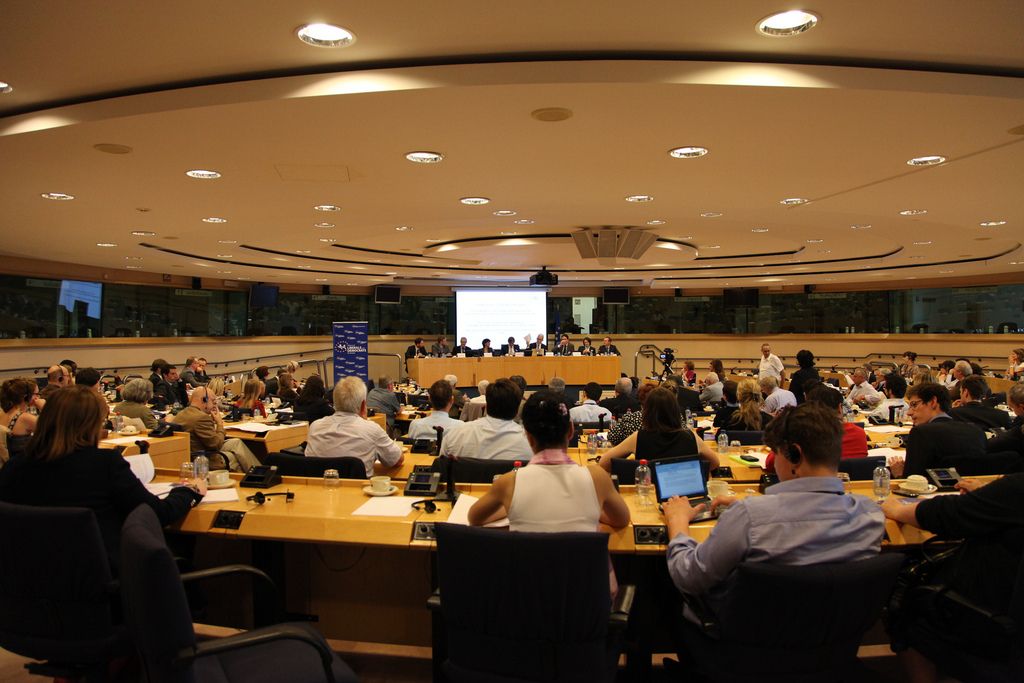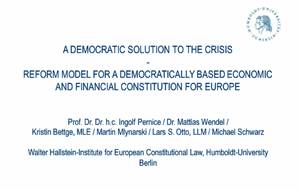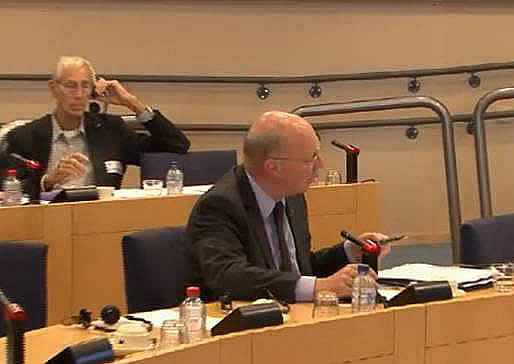
The seminar 27 June 2012 began with the presentation of the report undertaken by Professor Pernice and his team at the Humboldt University Berlin analysing these questions in depth. This was followed by a discussion between MEPs and academic experts concerning how to ensure an exit from the crisis, with a focus on the problem of the current democratic deficit in Europe, unavoidable in light of closed-door back room discussions in the Council, and the preference for intergovernmental rather than Community solutions. This was followed by a debate with participants and questions from the floor.
'ONLY A EUROPEAN FEDERAL UNION CAN SOLVE THE CRISIS – FEDERAL UNION OR DISINTEGRATION'
On Thursday 28th June 2012 and after the seminar, the Spinelli Group held a "Shadow European Council". Thirty years after the “Single Act”, a “Federal Act” was presented. The ‘Federal Act’ contains 12 elements following the outline of the 4 blocks identified by the “Towards a genuine economic and monetary union” produced by the 4 Presidents.

